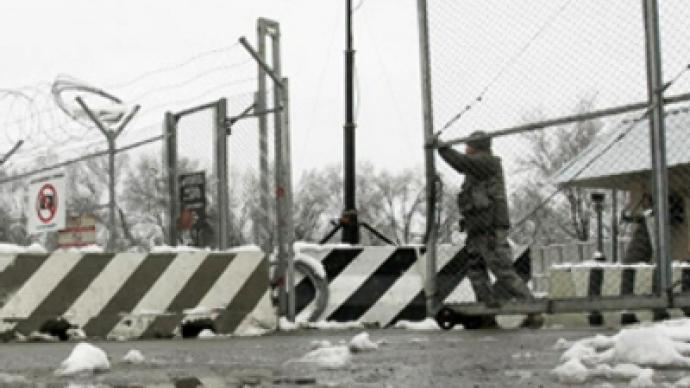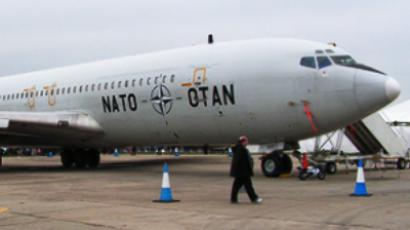US military gets the squeeze in Central Asia

Kyrgyzstan has slapped the US military with a dishonorable discharge from the Manas Air Base.
That was throwing a monkey wrench into US President Barack Obama’s plans to bolster troop strength in Afghanistan just as the Taliban is showing a startling resurgence. Now, Washington will be forced to go shopping for other real estate opportunities across Central Asia. But the options are limited.
Kyrgyzstan President Kurmanbek Bakiyev made the announcement about the base closure during a joint press conference with Russian President Dmitry Medvedev on February 3.
Bakiyev said he was ejecting US forces after repeated requests for increased rent payment went ignored. Washington pays $65 million annually for the Manas Air Base, while injecting another $150 million through economic incentives.
Although Russia denies it exerted any behind-the scenes influence on the decision, it certainly made the Kyrgyzstan’s loss of Washington’s rent money a lot easier to accept: Bakiyev returned home with a massive loan package worth more than $2 billion, almost the equivalent of the landlocked nation’s total debt.
But for Washington, the question may no longer be a matter of dropping hard cash; even Uncle Sam’s fathomless pockets may not be deep enough to reverse the public relation damage inflicted by the bumbling Bush administration.
Following the horrific terrorist attacks of 9/11, which was thought to have been hatched in the sands of Afghanistan, there was little resistance to the idea of US military bases being established in Central Asia. With the full sympathy of the international community behind it, America suddenly enjoyed carte blanche.
Uzbekistan gave the US military base privileges at Karshi-Khanadad, known as K2, which offered convenient cross-border access to the Afghan border. Kyrgyzstan followed suit a short while later with the Manas Air Base just outside the capital of Bishkek.
But starting with the unexpected and very unpopular U.S. invasion of Iraq in March 2003, Central Asia, not to mention the regional powerhouses of Russia and China, began to wonder how long the US military would keep its XXL boot print in the volatile region. It may be only coincidence that the Collective Security Treaty Organization (CSTO), comprised of Russia, Armenia, Belarus, Kazakhstan, Kyrgyzstan and Uzbekistan, was founded in October 2002, just as war in Iraq was starting to look inevitable.
The first sign that America was wearing out its welcome in the region came shortly after Uzbekistan violently suppressed prison riots and public demonstrations in the province of Andijan in May 2005. Some human rights groups estimated the number of people killed at 500. The US, under pressure from human rights groups, asked the government of President Islam Karimov to permit an international probe into the crackdown. This move quickly led to the end of K2 basing privileges.
This was also around the time that various color revolutions, believed in some circles to have been underwritten by the United States government, were rocking the region.
Now that the US military has also lost the Manas Air Base, what other options does the Obama administration have for maintaining supplies and troops in Afghanistan?
The surprise answer is Russia, which is looking to normalize relations with the US and NATO after the ‘three Gs’ – Gas, Georgia and George – helped to raise the specter of a new Cold War in the minds of many political analysts. The rhetoric has climbed down a notch or two of late, but the fear and loathing continues to simmer just below the surface.
“The most important thing is to normalize Russia-NATO relations,” Russian Foreign Minister Sergey Lavrov told reporters Wednesday, adding that the alliance must understand Russia’s security interests.
Moscow has floated the idea of NATO using Russian transport planes to airlift military supplies to assist the ongoing operations in Afghanistan. There is also speculation that Russia could fly supplies out of Kyrgyzstan, where it has a base in Kant.
Whatever the final result, both sides must appreciate the coincidence of the timing of a possible agreement. On February 15, Russia remembers the 20th anniversary of its withdrawal from the deserts of Afghanistan.













